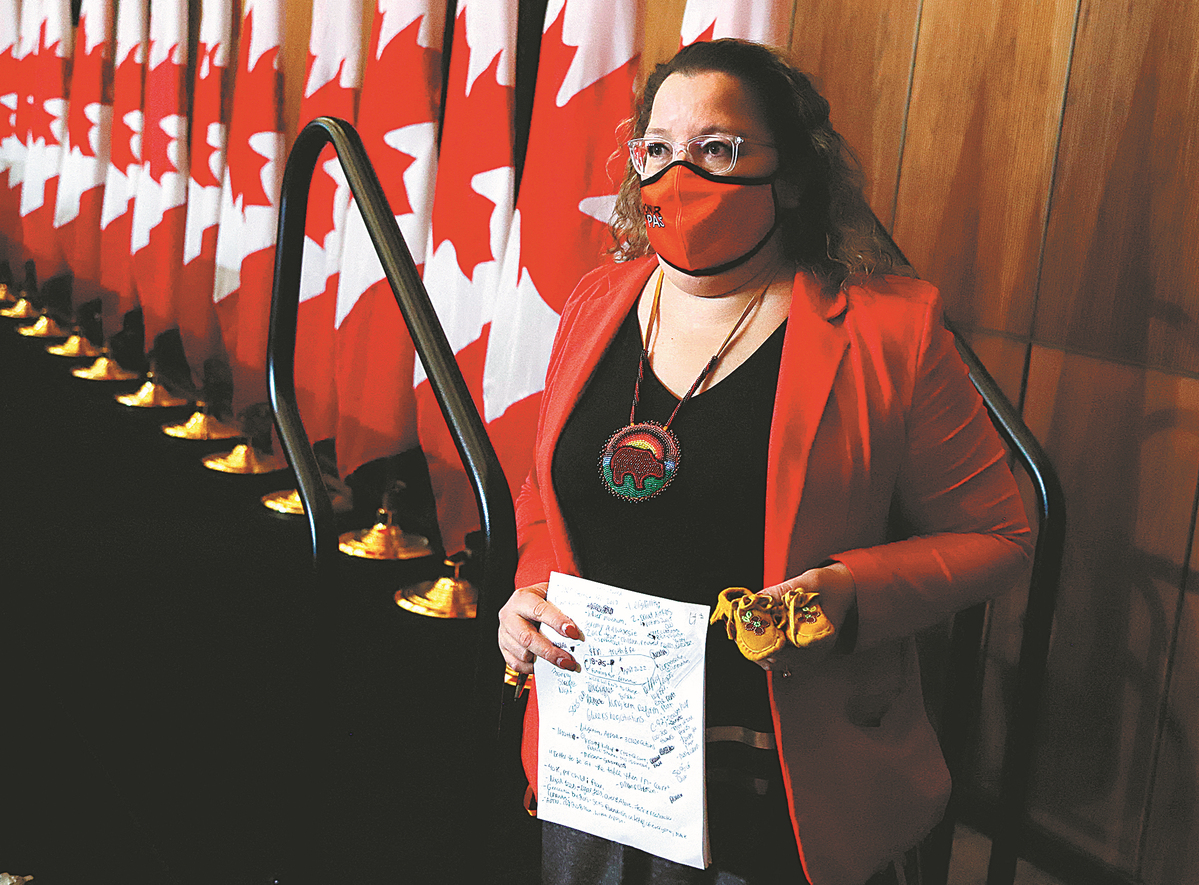Compensation agreed for indigenous children
China Daily | Updated: 2022-01-06 10:01

TORONTO-Canada announced on Tuesday two agreements totaling C$40 billion ($31.5 billion) to compensate First Nations children who were taken from their families and put into the child welfare system and to reform the system that removed them and deprived them of the services they needed.
The agreements include C$20 billion for potentially hundreds of thousands of First Nations children who were removed from their families, did not get services or experienced delays in receiving services. Another C$20 billion will be allocated to reform the system over the next five years.
This comes almost 15 years after the First Nations Child and Family Caring Society brought forward a human rights complaint.
Despite making up less than 8 percent of children under 14, indigenous children account for more than half of those in Canada's foster care, according to a 2016 census.
Over the past three decades, at least 150,000 indigenous children were taken from their homes and placed into one of 139 residential schools.
Thousands died, mostly from malnutrition, disease or neglect, in what a truth and reconciliation committee called "cultural genocide" in a 2015 report. Many others were physically or sexually abused.
On the heels of the discovery of more than 1,200 unmarked graves at these schools, Canada is starting to come to terms with the nationwide trauma.
Canada admitted its systems were discriminatory, but repeatedly fought orders to pay compensation and fund reforms, including an appeal it filed last year. It has said it believes the payments are necessary, but would rather iron out the details in talks.
Canada is also fighting a class-action lawsuit on behalf of First Nations children that the compensation agreement seeks to resolve.
Justice Minister David Lametti said on Tuesday that the government will drop its appeals once the agreements are finalized in the months ahead.
The reform deal includes C$2,500 in preventive care per child and provisions for children in foster care to receive support beyond the age of 18.
Funding aimed at reform and preventive services should start in April, but may not address deep-rooted problems, said Cindy Blackstock, executive director of the First Nations Child and Family Caring Society.
"I see it as words on paper," she told Reuters.
Crown-Indigenous Relations Minister Marc Miller called Tuesday's agreement "the largest settlement in Canadian history" at a videoed news conference.
"This settlement is historic and hopefully a turning point in this country's work on reconciliation," Robert Kugler, one of the lawyers, said in a statement. The amount, he added, "underscores the severity of the harm suffered, and will provide financial support to enable victims to better their lives going forward".
Agencies via Xinhua
























